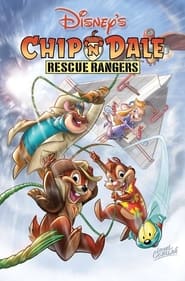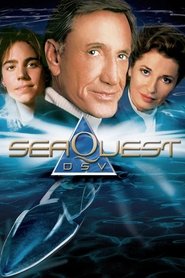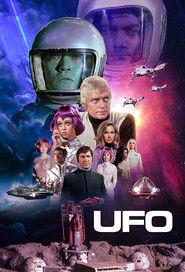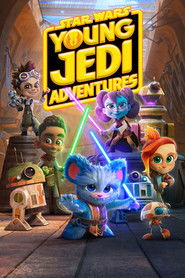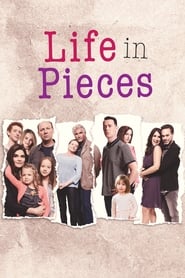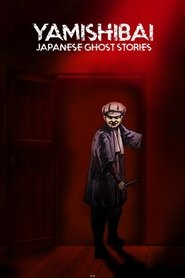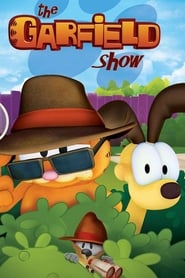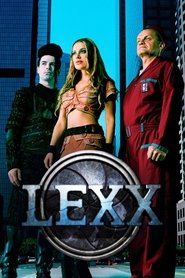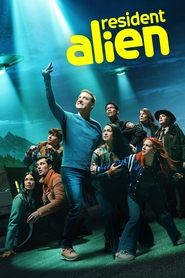Popular Reality TV Series - Page 81
-
Noble Reincarnation: Born Blessed, So I'll Obtain Ultimate Power
2026
star 8.1Noa’s past life as a young adult villager was nothing to write home about. But now he’s reborn as the 13th prince of an empire! His stats screen reveal that he’ll grow stronger proportionately to the number of people serving under him. To gain ultimate power, he’ll do whatever it takes to make sure that those who serve him shall serve him for life! -
Chip 'n' Dale Rescue Rangers
1989
star 7.6Chip and Dale head a small, eccentric group of animal characters who monitor not only the human world, but the animal community as well, solving mysteries wherever they may be. The "Rescue Rangers" take the cases that fall through the cracks. -
The Bionic Woman
1976
The Bionic Woman
1976
star 6.9After fully recovering from her near fatal bout of bionic rejection, Jaime Sommers, the first female cyborg, is assigned to spy missions of her own. -
seaQuest DSV
1993
seaQuest DSV
1993
star 7.1In the early 21st century, mankind has colonized the oceans. The United Earth Oceans Organization enlists Captain Nathan Bridger and the submarine seaQuest DSV to keep the peace and explore the last frontier on Earth. -
Star Blazers: Space Battleship Yamato 2199
2013
star 7.3The year is 2199. The human race has been crushed in their war with the Gamilos, driven into underground cities by the invader's assault. Scientists estimate they have only a year left. The young officers Susumu Kodai and Daisuke Shima receive a mysterious capsule from a ship that made an emergency landing on Mars and return with it to Earth. It contains humanity's last hope: the planet Iscandar on the other side of the Magellan Galaxy has the technology to defeat the Gamilos and restore the planet. The space battleship Yamato is entrusted with this task, but they have only one year before humanity ends. -
变形计
2006
变形计
2006
-
UFO
1970
UFO
1970
star 7.7A secret, high-technology international agency called SHADO defends Earth from alien invaders. -
Star Wars: Young Jedi Adventures
2023
star 4.6Set during the High Republic era and the prime of the Jedi Order, follow Jedi younglings as they study the ways of the Force, explore the galaxy, help citizens and creatures in need, and learn valuable skills needed to become Jedi along the way. -
Agios Erotas
2024
Agios Erotas
2024
star 6.5A young priest and professor of theology upsets a small town upon his arrival. Apart from charm, however, it also hides secrets. No one knows the real reason it is there. And no one can predict, least of all himself, that the young daughter of the most powerful man in the area will prove to be his greatest test. -
Departure
2019
Departure
2019
star 6.5Follow the mystery of Flight 716 - a passenger plane that vanishes over the Atlantic Ocean. Following the mysterious crash, recently widowed, brilliant aviation investigator Kendra Malley is called in to investigate by her former boss and mentor Howard Lawson. -
My Page in the 90s
2026
My Page in the 90s
2026
star 9A laugh-a-minute romantic comedy where a 2025 feelings coach gets zapped into a cheesy vintage novel and meets her match, a 1999 CEO who's sweet on the outside but shrewd within. In the ultimate battle of romantic tactics, who will out-scheme whom? To get home, influencer Lin Huan'er launches an operation to win over CEO Gao Haiming, only for her clever plans to hilariously backfire. Just as her ticket home appears, she realizes her heart has already checked in for good. Can this cross-storybook couple write their own happy ending? -
Life in Pieces
2015
Life in Pieces
2015
star 7.1Comedy about one big happy family and their sometimes awkward, often hilarious and ultimately beautiful milestone moments as told by its various members. Of the three siblings, middle child Matt may have just found his true love, his co-worker, Colleen; his coddled youngest brother, Greg, and his wife, Jen, are overwhelmed by the birth of their first child; and the eldest, Heather, and her husband, Tim, are dreading their impending empty nest so much, they're considering having another baby. Their parents are Joan the family's adoring matriarch who would do anything for her kids - as long as she agrees with it - and John, the gregarious patriarch who's searching for ways to soften the blow of turning 70. As the family's lives unfold in four short stories each week, they try to savor these little pieces of time that flash by but stay with you forever, because these moments add up to what life's all about. -
Mr. Bean
1990
Mr. Bean
1990
star 8Mr Bean turns simple everyday tasks into chaotic situations and will leave you in stitches as he creates havoc wherever he goes. -
Dragon Quest: The Adventure of Dai
2020
star 8Young Dai embarks on an epic journey to become a legendary hero, training with his loyal companions to save the world from the resurrected Demon King. -
Stick
2025
Stick
2025
star 7.2Pryce Cahill was headed for golf greatness when an on-course meltdown derailed his career. Now struggling to stay afloat, he goes all in to mentor Santi—a teenage phenom with immense potential—and maybe save himself. -
Theatre of Darkness: Yamishibai
2013
star 7.4Yamishibai is a picture-story style of animation whose motif is surrounded and based off the rumors, and urban legends throughout the history of Japan. -
Gomorrah
2014
Gomorrah
2014
star 8.1Based on Robert Saviano's bestselling book, this gritty Italian crime drama paints a portrait of the brutal Neapolitan crime organisation the Camorra, as seen through the eyes of Ciro Di Marzo, the obedient and self- confident right-hand man of the clan's godfather, Pietro Savastano. -
The Garfield Show
2009
The Garfield Show
2009
star 6.4Your favorite lazy, fat cat is at it again. Garfield, Odie, Jon and the rest of the gang are back for more funny misadventures. Whether he's scarfing down lasagna or tricking Nermal the kitten, Garfield is guaranteed to crack you up. But remember: He hates Mondays! -
Lexx
1997
Lexx
1997
star 7A Time Prophet predicted that Kai would be the one to destroy the divine order in the league of the 20,000 planets, someday that will happen, but not today. Today a cowardly security guard, an undead assassin, a female with a body designed for sex and a robot head madly in love with her all make up the crew of the spaceship Lexx, the most powerful weapon in the two universes. -
Resident Alien
2021
Resident Alien
2021
star 7.8Crash-landed alien Harry takes on the identity of a small-town Colorado doctor. Arriving with a secret mission, he starts off living a simple life…but things get a bit rocky when he’s roped into solving a local murder and realizes he needs to assimilate into his new world. As he does, he begins to wrestle with the moral dilemma of his mission and asking the big life questions like: “Are human beings worth saving?” and “Why do they fold their pizza before eating it?”
 Netflix
Netflix
 Amazon Prime Video
Amazon Prime Video
 Apple iTunes
Apple iTunes
 Apple TV Plus
Apple TV Plus
 Disney Plus
Disney Plus
 Google Play Movies
Google Play Movies
 Paramount Plus
Paramount Plus
 Hulu
Hulu
 HBO Max
HBO Max
 YouTube
YouTube
 fuboTV
fuboTV
 Peacock
Peacock
 Peacock Premium
Peacock Premium
 Amazon Video
Amazon Video
 The Roku Channel
The Roku Channel
 AMC+
AMC+
 Kocowa
Kocowa
 Hoopla
Hoopla
 The CW
The CW
 Vudu
Vudu
 Starz
Starz
 Showtime
Showtime
 PBS
PBS
 Pantaflix
Pantaflix
 FXNow
FXNow
 Tubi TV
Tubi TV
 Kanopy
Kanopy
 Comedy Central
Comedy Central
 Crunchyroll
Crunchyroll
 Microsoft Store
Microsoft Store
 Redbox
Redbox
 Sun Nxt
Sun Nxt
 ABC
ABC
 DIRECTV
DIRECTV
 Crackle
Crackle
 Fandor
Fandor
 Plex
Plex

